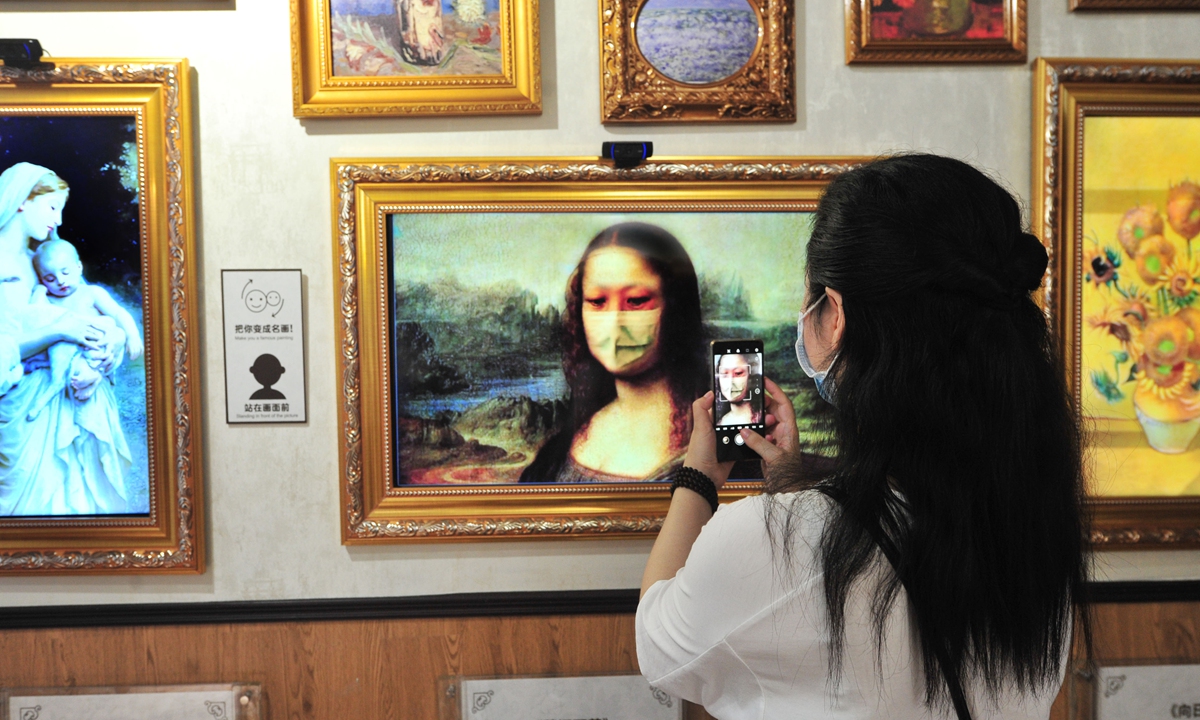
Photo: IC
China's first-ever set of provisions to regulate the use of deepfake technology officially take effect on Tuesday, with the aim to prevent the misuse of this technology while adapting to the rapid development of artificial intelligence (AI) industry.
Introduced jointly by the Cyberspace Administration of China, the Ministry of Industry and Information Technology and the Ministry of Public Security, the regulations stress that synthetic videos and photos made using deep synthesis technology, commonly known as "deepfake," must be "clearly labeled" in order to prevent public confusion.
The regulations stressed the responsibilities of deepfake providers as well as their users, to include prohibiting illegal acts by using the technology, setting up a review system and identifying user information.
"The specialized regulation issued by China for deep synthesis services has and will continue to have a far-reaching impact on the healthy development of internet information services," said Meng Dan, director of the Institute of Information Engineering, Chinese Academy of Sciences.
Deepfake technologies have made rapid leaps in recent years where techniques including speech synthesis, face-changing, and even digital humans can be a dream come true thanks to that.
Simply by downloading a face-changing APP, users can easily replace the face of a famous actor with their own in an image or even an entire scene from a movie in just a few seconds.
However, "from now on, just like advertisements in China, people will see a small label in the corner of these videos and images, which is a good thing to avoid confusion and crime. This shows that China is doing its best to keep up with the incredible development of the internet and the AI industry," Ding Daoshi, a veteran analyst in the AI sector, told the Global Times.
Other than deepfake, AI art and AI robots are also covered in the new regulations.
Lots of problems have occurred before when it comes to face-changing technology. In 2019, ZAO, an AI face-changing application, went viral after people began to upload photos of themselves as the protagonist of various films.
However, three days after the app was released, the company behind ZAO was investigated by the Ministry of Industry and Information Technology for allegedly collecting facial data contrary to laws and regulations and the app was taken down.
In addition to such apps, many research institutes and companies are also conducting research on deep synthesis technology. In early 2022, a team from the University of Science and Technology of China were awarded for their deepfake video generation methods at the China Artificial Intelligence Competition.
In response to concerns that the new regulations may dampen the rapid expansion experienced by the AI market, experts say that the regulations will not hinder the progress of China's technology industries.
"What China's top cyberspace regulators are doing now is to restrain bad behavior and to prevent criminal acts. Only by stopping the wrongdoings can those good companies seek further development and avoid unnecessary disputes," Ding said .
At present, there have not been many achievements in terms of specific legal or regulatory restrictions, even in some European countries and the US, who are a step ahead of the rest of the world in AI development.
In 2020, the European Union published the White Paper on Artificial Intelligence, proposing a series of measures for AI R&D and supervision.
The white paper also provoked responses from many huge tech companies including Facebook and Google, who feared that they would be targeted as they were after the publishing of the General Data Protection Regulation.
Many countries are also tracking and punishing AI-related crimes through existing laws and regulations concerning social media or data protection.
China's new regulations are also based on the framework of China's existing laws, noted cyberspace experts.
"Although specific punishment measures have not yet been released, these regulations are formulated in accordance with multiple legal provisions, covering areas including network security, e-commerce, data security and personal information protection," noted Ding.
"And therefore, penalties will be imposed in accordance with the laws of the relevant field.
"China has formulated regulations in a timely manner based on the development of the internet and the AI market. As the promulgation of regulations synchronizes with the development of the internet and AI, which shows the forward-looking nature of China's AI development," Ding said



